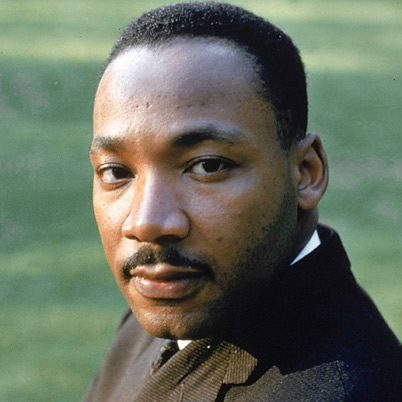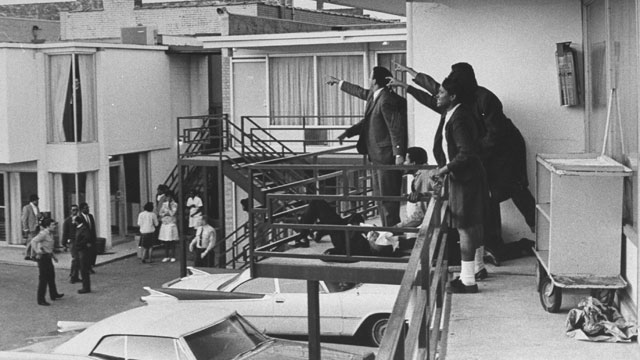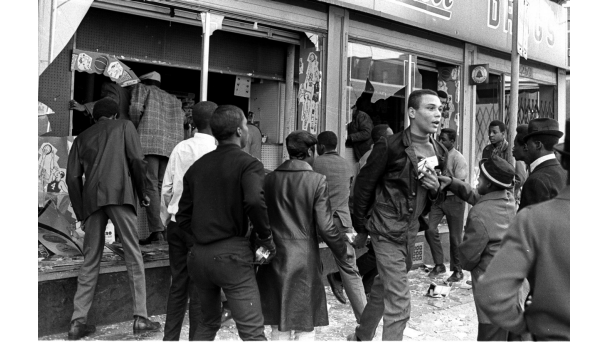April 04, 1968
Civil rights leader Martin Luther King, Jr. was in Memphis to help striking black sanitation workers seeking city recognition of their labor union. While standing on the balcony of the Lorraine Motel, the 39-year-old King was shot and killed by a sniper.
In Atlanta, mayor Ivan Allen, Jr. saw a television news flash telling of King’s shooting and called Coretta Scott King to express his sympathy and ask if there was anything he could do. At the time, King was still alive, so she asked Allen to help her get to the airport to catch a plane to Memphis. Allen arranged a police escort and he and his wife accompanied her to the airport. Upon arriving, they received the news that King had just died. Allen and his wife returned home with Mrs. King and family members. There, she received a phone call of condolences from Pres. Lyndon Johnson.
Johnson then went on national television to express his sorrow and to appeal for calm: “We have been saddened. I ask every citizen to reject the blind violence that has struck Dr. King, who lived by nonviolence … .We can achieve nothing by lawlessness and divisiveness among the American people.” Presidential candidate Robert Kennedy said “Rev. King had a life dedicated to peace, justice, compassion, and nonviolence. It is up to us to fulfill his dream.”
In Georgia, longtime King foe Gov. Lester Maddox had no public comment and refused to take reporters’ questions. Across America, however, reaction was immediate as many African Americans expressed grief and outrage over King’s assassination. Singer James Brown went on national television to appeal for restraint, but rioting broke out in more than 100 cities across America, resulting in the deaths of 46 people. In Atlanta that night, it was raining heavily, which helped spare the city from the violent demonstrations experienced elsewhere.
Two months after King’s assassination, James Earl Ray was captured in London. British officials returned him to Tennessee, where he initially confessed to the crime. Three days later, he took back his confession but then subsequently agreed to a guilty plea in exchange for his life. He was sentenced to prison for 99 years, but he died in 1998 from complications caused by hepatitis.
Special thanks to Georgia Info.





